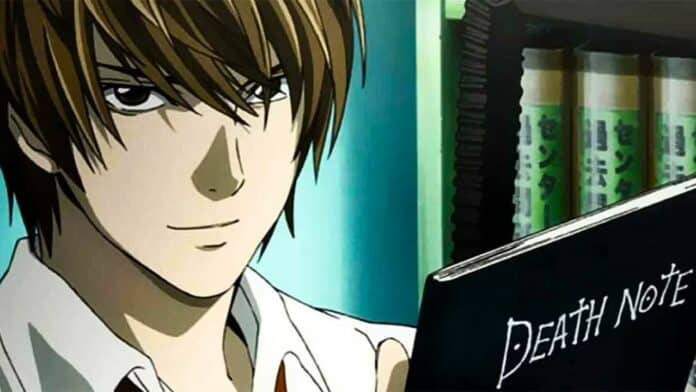“Death Note,” a critically acclaimed manga and anime series created by Tsugumi Ohba and Takeshi Obata, features one of the most complex characters in anime history, Light Yagami.
We delve into the psychological makeup of Light Yagami, examining the factors that shape his character and whether he can be classified as a hero or a villain. Light’s journey in “Death Note” raises profound questions about morality, justice, and the corrupting influence of power.
Light Yagami: The Genesis of a Complex Character
Light Yagami starts as a high-achieving high school student who stumbles upon the Death Note, a notebook with the power to kill anyone whose name is written in it.
Initially, Light’s intentions with the Death Note are arguably noble, as he seeks to eliminate criminals and create a utopian world free of wrongdoing. However, as the series progresses, his methods and motivations become increasingly questionable.
The Transformation from Justice Seeker to Power Monger
Light’s transformation is central to understanding his character. Initially seen as a seeker of justice, Light gradually becomes consumed by his newfound power.
His initial idealism about ridding the world of evil is slowly overshadowed by his desire to assert control and power, leading him down a path of moral corruption.
The Psychology Behind Light’s Actions
Psychologically, Light’s journey can be viewed through the lens of a classic power corrupts narrative. The absolute power granted by the Death Note leads to his ethical downfall, as he becomes more detached from the value of human life.
Light’s God complex, where he starts viewing himself as the arbiter of life and death, reflects a profound psychological shift from righteousness to megalomania.
Hero or Villain: The Moral Ambiguity
One of the most intriguing aspects of Light’s character is the moral ambiguity that surrounds him. On one hand, he can be seen as a hero who takes a stand against crime and corruption.
On the other, his methods, lack of empathy, and authoritarian vision paint him as a villain. This ambiguity is what makes Light’s character psychologically complex and fascinating.
The Role of Environment and Relationships
Light’s environment and relationships play a crucial role in his psychological development. The pressure of being a high achiever, the lack of meaningful challenges, and the absence of strong moral guidance are factors that contribute to his transformation.
His interactions with characters like L, his father, and Ryuk further influence his journey and his view of the world.
The Question of Justice
Light’s version of justice in “Death Note” is a subject of debate. While he believes in creating a world without crime, his approach involves taking the law into his own hands and executing those he deems unworthy.
This raises questions about the nature of justice and whether the end justifies the means.
Light Yagami’s character in “Death Note” offers a deep dive into the psychology of power, justice, and morality. His transition from a promising student to a ruthless power wielder poses questions about the duality of human nature.
Whether Light is a hero or a villain is a matter of perspective, shaped by one’s own ethical and moral beliefs. His character challenges viewers to ponder the complexities of justice and the consequences of unchecked power, making him one of the most intriguing characters in the world of anime and manga.
Also Read: Why did Ryuk drop his Death Note into the human world?

